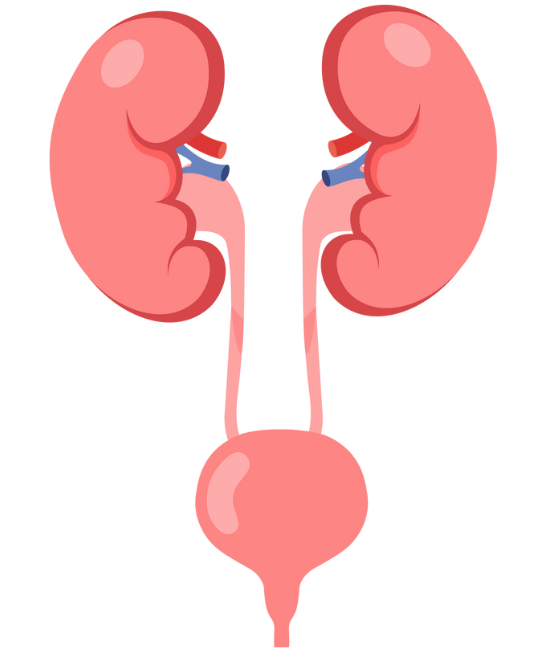Read our detailed blog on Kidney Disease
 What do the Kidneys do?
What do the Kidneys do?
The kidneys are the natural filters of blood in the body. They filter waste and balance internal fluids along with producing important hormones for red blood cell production and blood pressure regulation. Some of this filtrate is reabsorbed back into the body and the rest goes to the bladder as urine.
Is Kidney Failure in Dogs Common?
Kidney failure is defined as end stage renal disease. Your dog may be first diagnosed with kidney disease and not failure which means there is compromise to the kidneys and they have not completely lost all function yet. Kidney disease in dogs is less commonly diagnosed compared to cats. Unfortunately, dogs diagnosed with kidney disease do not do well with this disease and the prognosis can be guarded. There is no cure for kidney disease, there is only management of symptoms and treatments to help slow down it's progression.
 Signs of Kidney Disease in Dogs:
Signs of Kidney Disease in Dogs:
Signs of kidney disease in dogs include increased drinking and urination, loss of appetite, lethargy, bad breath, ulcers in the mouth, and weight loss. Dogs can be sneaky in hiding the initial signs of kidney disease so having regular preventive health exams, blood work, and urinalysis is integral to early detection. When bloodwork is completed, your dog will be staged for the severity of the disease process via the guidelines outlined by the International Renal Interest Society or IRIS. These guidelines aid you and your veterinarian in tailoring your dog's treatments and life expectancy.
Prognosis of Kidney Disease in Dogs:
Determining specific life expectancy for a patient diagnosed with kidney disease is complicated. Factors such as initial IRIS staging as well as pet compliance with treatment and food changes influence disease progression and eventual quality of life considerations.
Call us or use our online form to schedule an appointment for your dog!
